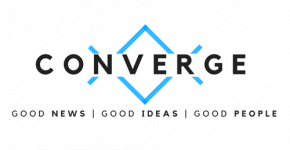Inequalities in wealth and wages divide global society by concentrating the majority of wealth and power for a few while the numerous communities feel burdened by poverty, and a fragile ecosystem. The addition of political crisis all around the world force humanity to stand at the brink of an economic disaster. According to scientists, people are currently fueling the dramatic race toward the Sixth Extinction – the next extinction after the one that wiped out the dinosaurs. But, at the same time that people are creating the crisis, they also provide the opportunity to reverse it.
Indeed, the economic model of today spreads inequalities among many for the benefits of only a few. Only a fundamental transformation of our system can save us from a disaster. The dominant capitalist model that emerged after the Great Depression is starting to show the cracks of a fragile foundation. Moving away from a “Me before you” strategy to embrace a “me and you” model is the only viable solution. It’s time for people to work hand-in-hand together toward common economic goals.
Convincing real people
A peer-to-peer economic model would offer a solidarity approach to the diversity of needs and offers available in the market. Indeed, in a context where businesses need to interact with their audience, face-to-face interactions have never made more sense. Keeping at heart, the people-to-people objective of a renewed economy, the heart of market engagement and communication lies in trade and network events that allow sellers and buyers to meet and discover their common objective(s). Naturally, the organization of such events is detrimental to its success, from the choice of interactive stations to introduction of business facilitators – such as cash points for buyers or scheduled educational conferences. Going forward onto the market, the business focus needs to shift from reaching out to a broad audience to meaningful interventions with a contained group.
Helping individuals instead of a mass audience
As businesses move away from a large-scale economy model to identify individual points of connection with identified buyers, the market presence needs to promote structured, one-to-one projects – as explained by Lew Schulman of iBuild whose digital tools helps the Kenyan population to create small-scale construction projects at an individual basis. The narrow targeting approach not only respects the needs and affordability of every single buyer and seller, but it also establishes a stable trust relationship for economic growth. At the base of individual projects, a network of communication and transparent platforms redefines market needs, demands, and costs at a people-to-people’s level.
A direct interaction without middlemen
Just as the market needs to get to know the people behind the transactions, the banking and lending system can’t afford to use data only to decide on a loan application. In a people-based economic model, peer-to-peer lending becomes the preferred funding strategy. Indeed, the ability to build a trust relationship with the lender or the borrower transforms the understanding of each project. For a start, the eligibility criteria are individualized. Additionally, the overall process fees are dramatically cut down, making it a profitable investment option for all.
There is no denying that the “me before you” approach developed by years of competitive capitalism has left our society on the verge of an economic and social crisis. Shifting the position toward a human-centered system can not only give back a chance to many, but it can also put trust back in all business interactions and transactions.





